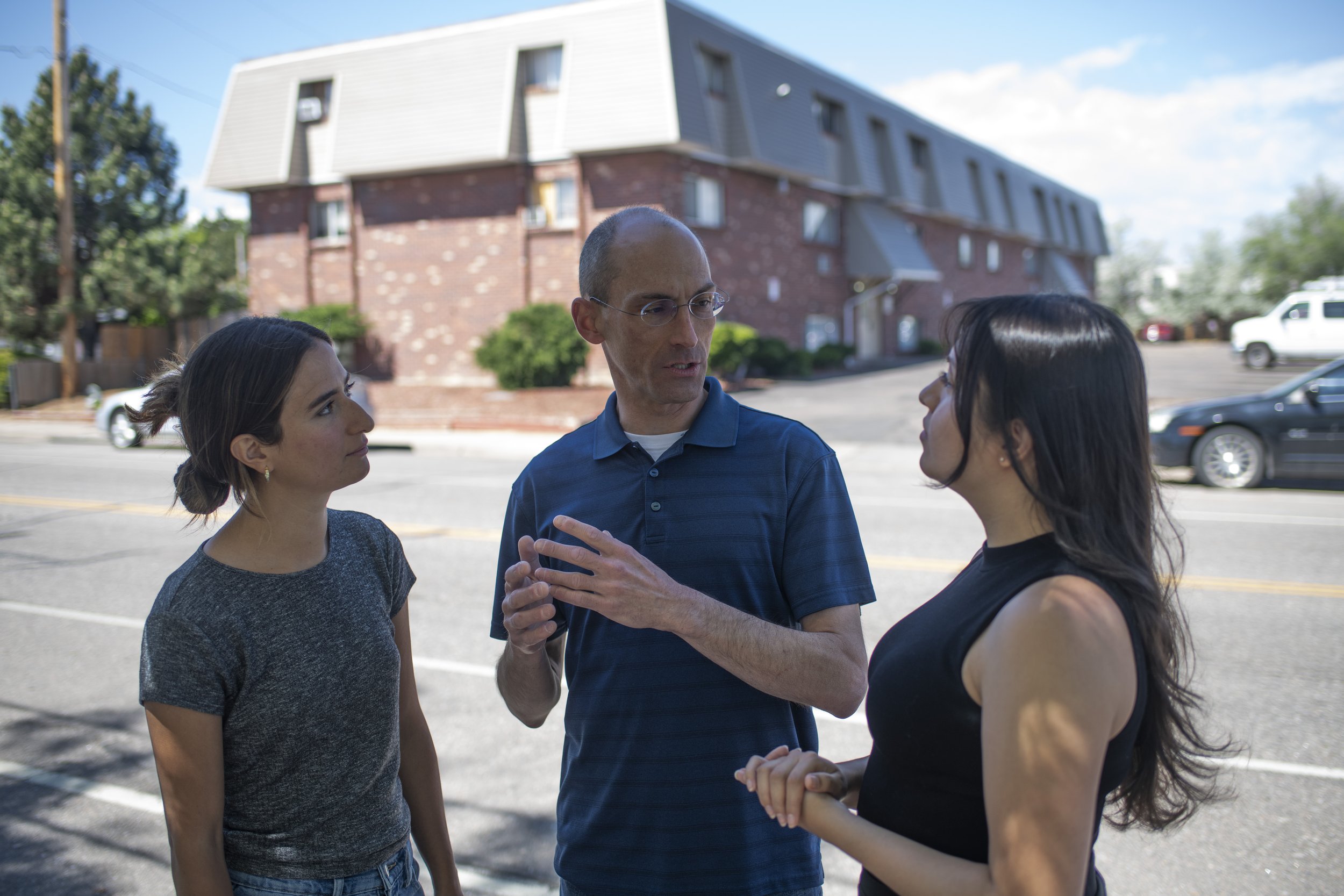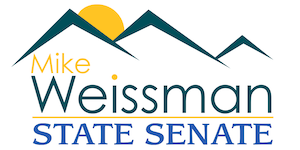
HOUSING
Colorado is in the midst of an affordable housing crisis – in Aurora, prices have doubled or tripled in some areas within the last ten years. It is increasingly hard for people to find housing – whether to own or to rent – and to stay in housing they already have. Our state has a responsibility to do more to address this problem.
Below are bills I’ve sponsored to address the lack of affordable housing, as well as other measures I’ve supported.
My legislation
-
Many renters have experienced firsthand how quickly fees can add up when applying to many different apartments in the course of trying to find a place to live. I sponsored this bill to allow renters to reuse a rental application for up to 30 days without paying additional fees. Reusability could save renters hundreds of dollars in the course of an apartment search - money that can go to cover costs of food, rent, healthcare, or other necessary expenses.
STATUS: Signed into law.
-
Almost all new housing in Colorado is built under a “metro district”, which is a kind of special district with taxing authority that is able to issue debt to be paid by homeowners by way of property taxes. I sponsored this bill to prevent those in charge of issuing debt (developers) to be able to purchase that same debt and benefit from interest payments that are paid off by homeowners, because this seems like a potential conflict of interest.
STATUS: Defeated due to lobbying by the metro district industry.
-
Property taxes fund our schools, counties and sometimes other services like firefighting and libraries. But when property values increase sharply in a short amount of time, as they have in Colorado in recent years, property taxes go up quickly too, and that can be hard for household budgets. I sponsored this bill to reduce the property taxes Colorado residents and businesses will pay for two years, saving the average homeowner hundreds of dollars and keeping taxes from going up at all for some small businesses. Due to existing school finance law, school funding will not be reduced by these property tax reductions, and the state will use its some its revenues to “backfill” other local government budgets.
STATUS: Signed into law.
-
Colorado’s “Senior Homestead Exemption” is a property tax break that helps many seniors make ends meet by reducing the property taxes they are required to pay. However, this exemption is not available to seniors who rent their homes or haven’t lived in the same home for at least 10 years. I sponsored this bill to create a 1-year refundable income tax credit of up to $1,000 for lower- and middle-income Colorado seniors (up to $75,000 adjusted gross income) who are not eligible for the property tax reduction. This tax credit will benefit around 150,000 Colorado seniors, saving them a total of $100 million to help meet the challenges of rising costs.
STATUS: Signed into law.
-
Almost no new housing in Colorado is built without a “metro district” (short for “metropolitan district”), which is a kind of government that can issue debt and impose taxes. As metro districts have proliferated – they now number more than 2,000 statewide, mostly in the metro Denver area – more and more residents have begun to question the amount of debt they issue and lack of transparency about their operations. I sponsored this bill to try to increase transparency surrounding metro district finances, to give cities and counties more oversight of metro districts on behalf of their taxpaying residents, and to prevent developers from buying debt that they themselves voted to issue (acting as directors of metro districts).
STATUS: Defeated due to lobbying by the metro district industry.
-
Since the housing crash of 2007-08, servicing of mortgages by companies other than banks has increased from about 10% of all mortgages to 50%, but Colorado historically had not had consumer protection laws overseeing these companies. Failures in proper servicing can lead to payments not going to lenders on time, headaches for homeowners, and at worst, foreclosures. I sponsored this bill to empower the Colorado Attorney General to oversee non-bank mortgage servicers doing business in Colorado and to assess fines on bad actors who harm homeowners.
STATUS: Signed into law.
-
Weatherizing your home (for example, by adding insulation to the attic) saves money and helps climate change by lowering your energy usage, but the cost of these upgrades can be a barrier to some people. I sponsored this bill to increase financial assistance for lower and middle income families by $3 million.
STATUS: Signed into law.
-
Whether you’re looking for a place to rent or a home to buy, housing is increasingly out of reach. Yet Colorado has been one of only a few states without a dedicated source of funding for affordable housing efforts. I sponsored this bill to create sustainable funding for housing efforts without raising taxes. By closing a loophole in our existing tax code, this bill will invest $45-50 million per year for construction of new housing units for sale and for rent and to support other housing efforts.
STATUS: Signed into law.
-
For over 10 years Colorado has had weak tenant protection laws. If you are paying rent, you deserve a home that is safe and livable with basics like functioning heat and plumbing. No one should have to move to escape an unsafe apartment, and in our tight rental market, it’s hard to find an available unit anyway. I sponsored this bill to improve tenants’ rights, limit landlord retaliation, and allow tenants to initiate repairs if landlords are not addressing problems impacting safety of a rental unit.
STATUS: Signed into law.
-
Low-income seniors and people with disabilities are able to claim a credit against state income taxes to offset the cost of property taxes or rent. The credit amount is very modest and has not been updated in several years, despite the rapidly increasing cost of housing. I sponsored this bill to increase the amounts available to eligible seniors by inflation and to allow the amounts to increase for inflation going forward to help seniors stay in their homes.
STATUS: Killed on a party-line vote in GOP state senate.
-
I co-sponsored another budget amendment to unlock $4.7 million for supportive housing for individuals with behavioral health conditions transitioning out of the criminal justice system. This funding would otherwise have gone unused, but now will help people in need avoid homelessness.
STATUS: Signed into law.
-
With property values rising all over the state, Coloradans should be able to make informed decisions about the true cost of buying and owning a home, including having a full picture of the taxes. I sponsored this bill to direct the state Division of Property Taxation to develop an informational tool on its website that Coloradans could use to estimate their property tax liability based on specific mill levy information. STATUS – killed on a party-line committee vote in GOP state senate.
I have also supported housing legislation to:
Strengthen renters’ rights by prohibiting abusive practices in rental agreements like fee-shifting to the renter, waiver of legal rights, or marked up costs (HB23-1095 – signed into law);
Reduce evictions for renters on Social Security or other safety net programs by requiring mediation. Mediation is a process by which parties attempt to work through a dispute with the help of a neutral third party and can often resolve conflicts more quickly and with less cost than court action. (HB23-1120 – signed into law);
Allow remote participation for eviction proceedings. COVID showed that a lot of official business can be conducted more easily via Zoom and other virtual technologies, and this bill extends that to eviction proceedings. By making it easier to participate in a hearing, tenants will better be able to assert their rights and avoid a “default judgment” of eviction. (HB23-1186 – signed into law);
Limit income and security deposit requirements to two times the monthly rent so that tenants don’t have to prove they make three, four, or five times the amount of already costly rent just to qualify to rent a home. (SB23-184 – signed into law);
Improve water quality for mobile home community residents by requiring testing and allocating grant funding to address water quality issues (HB23-1257 – signed into law);
Commit over $600M in grants, loans, incentives for lower-cost housing construction technologies, and more to create more affordable housing and to reduce homelessness (8 separate bills in the 2022 legislative session – signed into law);
Commit over $100M in funding to jumpstart additional affordable housing construction (HB21-1329 – signed into law), with an emphasis on supporting local governments that adopt strategies for greater affordability (HB21-1271 – signed into law);
Require greater disclosure of, and limitations, on, fees in rental agreements, and allowing tenants more time to catch up on late payment of rent before eviction (SB21-173 – signed into law) and limitations on and disclosure of rent increases (HB21-1121 – signed into law);
Increase local government control in zoning and land use to promote affordable housing (HB21-1117 – signed into law);
Strengthen rights of residents of mobile homes (manufactured homes) by limiting security deposits and fees and requiring greater notice before tenancies may be terminated (HB20-1196 – signed into law);
Allow mobile home park residents an option to purchase their park from the seller to avoid losing their homes (HB20-1201 – signed into law);
Increase privacy of eviction records by publishing these court records only when they are final (HB20-1009 – signed into law);
Prohibit discrimination in rental housing based on source of lawful income (HB20-1332 – signed into law);
Further increase funding for affordable housing efforts (HB19-1322 – signed into law);
Limit rental application fees (HB19-1106 – signed into law);
Allow renters more time to catch up on a late rental payment in the case of an emergency (HB19-1118 – signed into law);
Increase housing tax credits to incentivize construction of more housing units (HB19-1228 – signed into law);
Extend the affordable housing tax credit (SB18-007 – signed into law);
Reduce double-taxation on mobile homes (HB18-1315 – signed into law);
Make sure renters can get receipts for payments made (SB18-010 – signed into law); and
Limit rental application fees (HB18-1127 – killed in GOP state senate).




